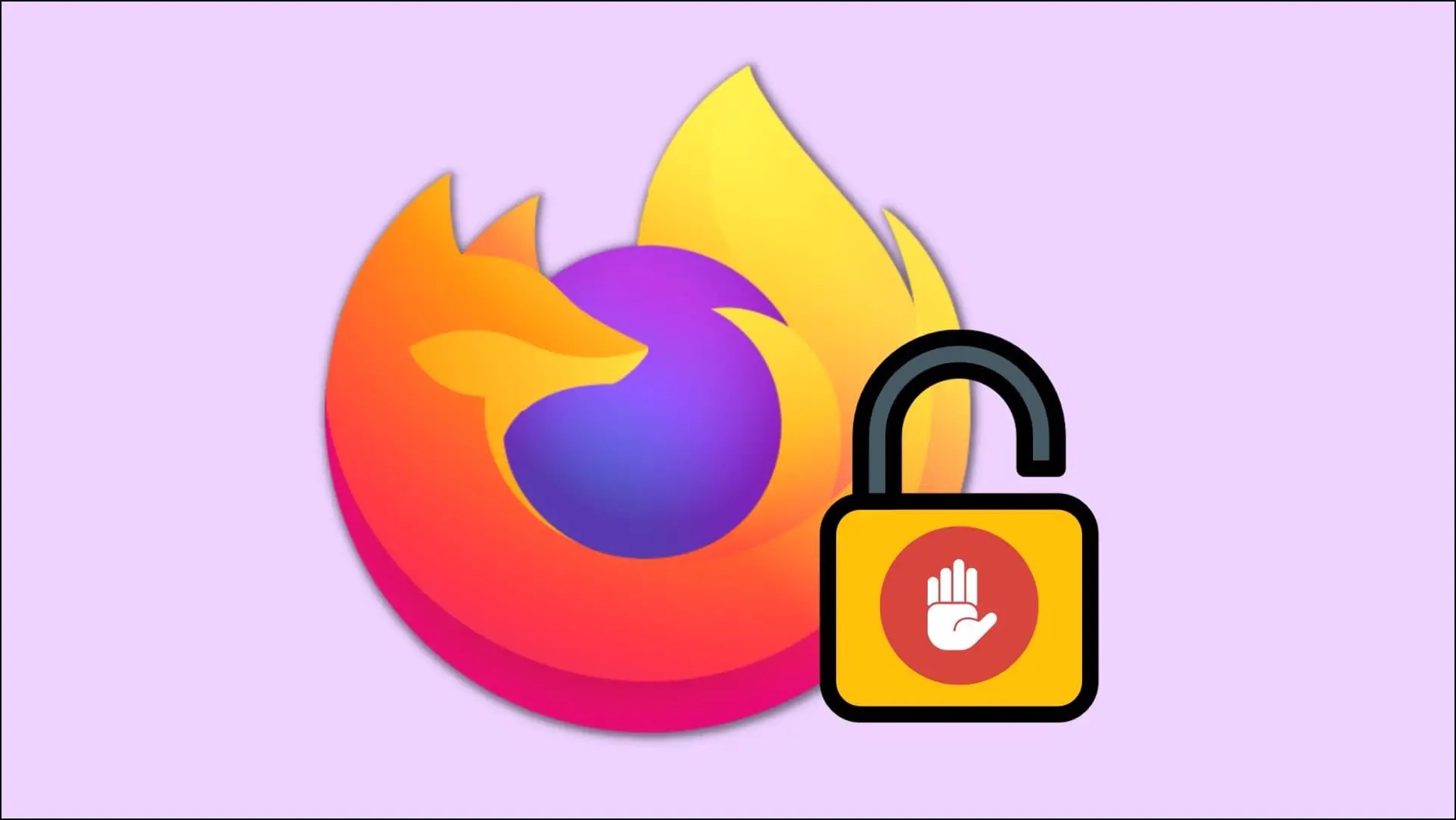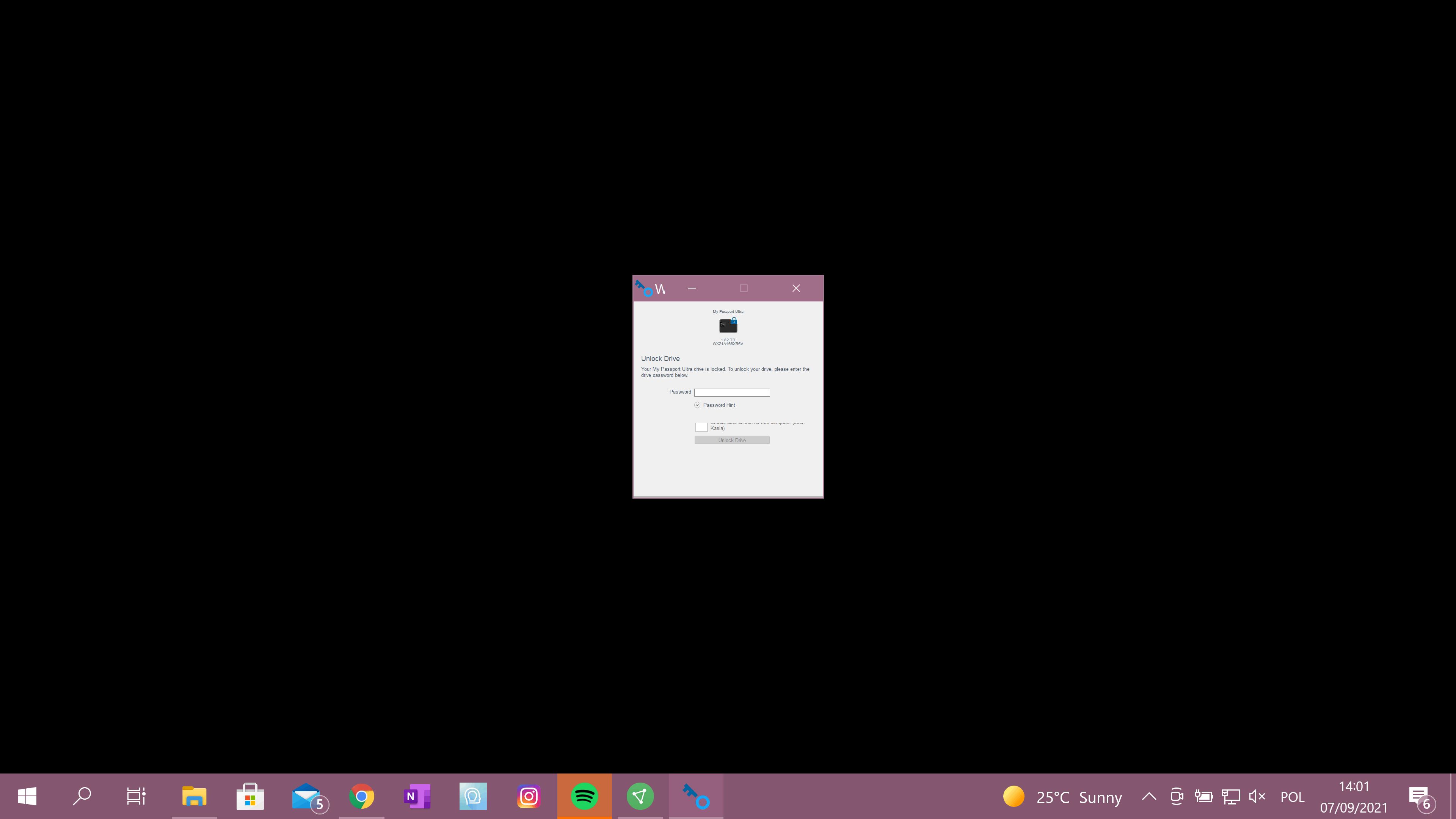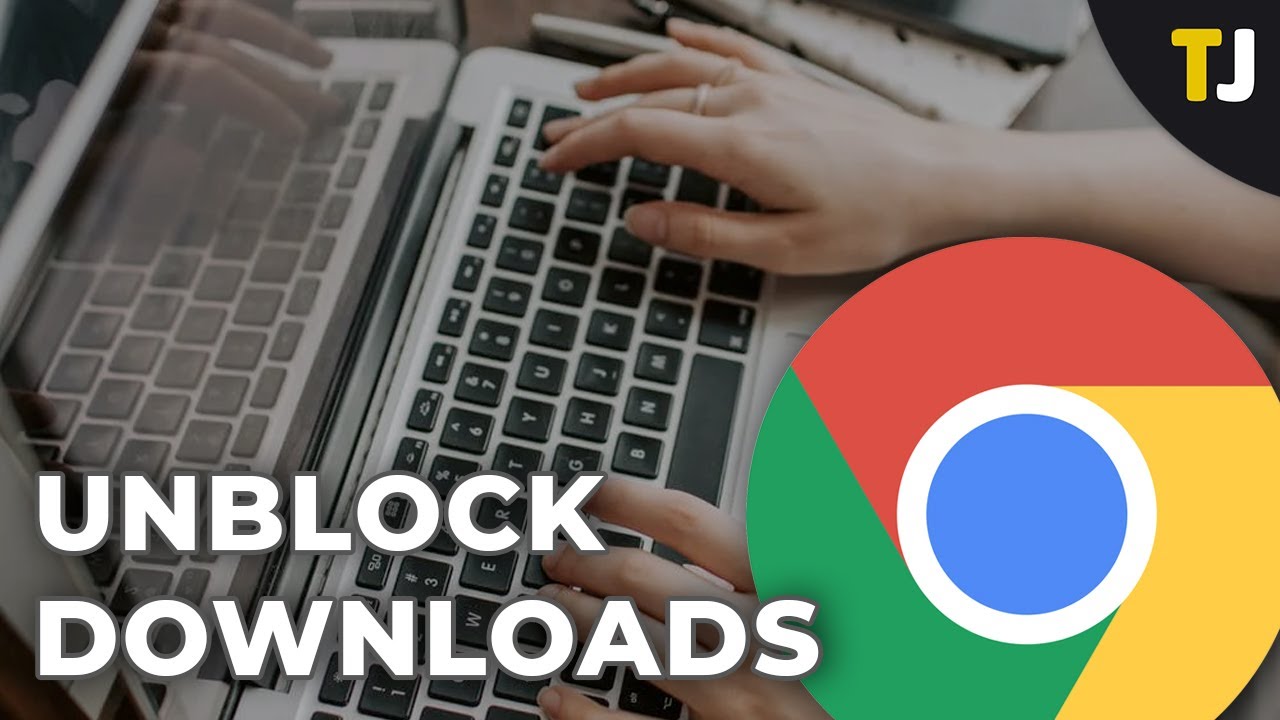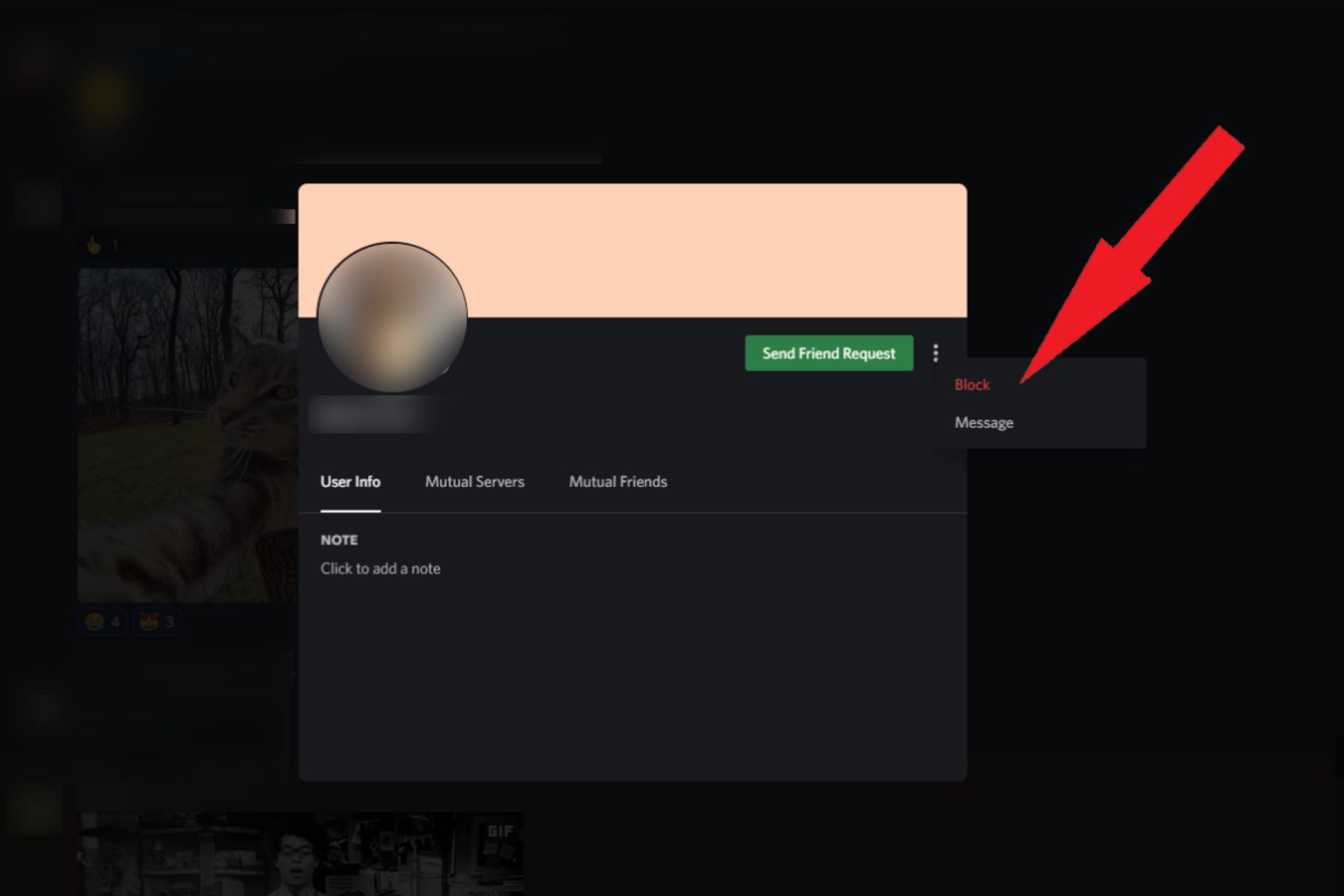Introduction
In today's digital age, web browsing has become an integral part of our daily lives. Whether for work, education, or entertainment, accessing websites is a routine activity for most individuals. However, there are instances when certain websites are restricted or blocked, preventing users from accessing their desired content. This can be due to geographical restrictions, network policies, or other limitations imposed by internet service providers.
Fortunately, there are various methods to unblock websites in the Firefox browser, allowing users to bypass these restrictions and gain access to the content they need. From utilizing VPN services and proxy servers to adjusting DNS settings and leveraging Firefox add-ons, there are multiple approaches to circumvent website blocks and enjoy unrestricted browsing.
In this comprehensive guide, we will explore these methods in detail, providing step-by-step instructions and valuable insights to help you unblock websites in Firefox. Whether you're facing censorship, encountering geo-blocked content, or simply seeking to enhance your online browsing experience, the following methods will empower you to overcome website restrictions and access the internet freely.
By understanding and implementing these techniques, you can reclaim your online freedom and explore the vast expanse of the internet without limitations. Let's delve into the various methods that can enable you to unblock websites in Firefox and unlock a world of digital possibilities.
Method 1: Using a VPN
In the quest to unblock websites in Firefox, utilizing a Virtual Private Network (VPN) stands as a highly effective and popular method. A VPN serves as a secure tunnel between the user's device and the internet, encrypting the data traffic and masking the user's IP address. This not only enhances online security and privacy but also enables users to bypass website restrictions and access geo-blocked content.
To begin, users can choose from a wide array of reputable VPN service providers available in the market. Once a suitable VPN service is selected, users can proceed to install the VPN client on their device. Most VPN providers offer user-friendly applications that are compatible with various operating systems, including Windows, macOS, iOS, and Android. Additionally, many VPN services offer browser extensions specifically designed for Firefox, simplifying the setup process and providing seamless integration with the browser.
After installing the VPN client or browser extension, users can launch the VPN application and log in using their credentials. Once connected to a VPN server, the user's IP address is replaced with the IP address of the VPN server, effectively masking the user's true location. This enables users to bypass geographical restrictions and access websites that may be blocked in their region.
Furthermore, VPNs encrypt the user's internet traffic, adding an extra layer of security and privacy to their online activities. This is particularly beneficial when accessing public Wi-Fi networks or when seeking to prevent third parties from monitoring one's browsing behavior.
It's important to note that while VPNs are powerful tools for unblocking websites and enhancing online security, selecting a reliable and trustworthy VPN service is crucial. Users should prioritize VPN providers that offer strong encryption, a strict no-logs policy, and a wide selection of servers across different locations. Additionally, users should consider the speed and performance of the VPN service to ensure a smooth and uninterrupted browsing experience.
By leveraging a VPN, users can effectively unblock websites in Firefox, bypass censorship, and access geo-restricted content with ease. This method not only empowers users to reclaim their online freedom but also enhances their overall internet privacy and security.
In summary, using a VPN is a robust and versatile approach to unblock websites in Firefox, providing users with the means to circumvent restrictions and explore the internet without limitations.
Method 2: Using a Proxy Server
When it comes to unblocking websites in Firefox, employing a proxy server presents another viable method that can bypass restrictions and grant access to blocked content. A proxy server acts as an intermediary between the user's device and the internet, allowing users to route their web traffic through the proxy server's IP address. This effectively conceals the user's true IP address and enables them to access websites that may be restricted in their current location.
To initiate the process of using a proxy server in Firefox, users can explore various options, including free proxy servers or subscription-based proxy services. Free proxy servers are readily available on the internet, offering users the ability to access websites anonymously and bypass certain restrictions. However, it's important to exercise caution when using free proxies, as they may not always guarantee the same level of security and reliability as paid proxy services.
Alternatively, users can opt for subscription-based proxy services, which often provide enhanced security features, faster connection speeds, and a more extensive network of proxy servers across different locations. These services typically offer dedicated applications or browser extensions that streamline the setup process and integrate seamlessly with Firefox, ensuring a user-friendly experience.
Once a suitable proxy server is selected, users can configure the proxy settings within the Firefox browser. This can typically be done by accessing the browser's settings or preferences and locating the network or connection settings. Within these settings, users can input the details of the chosen proxy server, including the IP address, port number, and any authentication credentials if required.
Upon configuring the proxy settings, users can verify the connection by accessing a website that was previously restricted. If successful, the user's web traffic will be routed through the proxy server, effectively bypassing any restrictions and allowing access to the desired content.
It's important to note that while using a proxy server can enable users to unblock websites in Firefox, there are considerations to keep in mind. Users should prioritize reputable proxy services that prioritize user privacy and security, as well as offer reliable connection speeds and minimal downtime. Additionally, users should be mindful of the potential limitations of using proxies, such as compatibility issues with certain websites or services.
In summary, utilizing a proxy server presents a viable method for unblocking websites in Firefox, providing users with an alternative means to bypass restrictions and access content that may be otherwise inaccessible. By understanding the process of using a proxy server and selecting a reliable service, users can enhance their browsing experience and overcome website blocks with ease.
Method 3: Changing DNS Settings
In the pursuit of unblocking websites in Firefox, an often overlooked yet effective method involves changing the Domain Name System (DNS) settings. The DNS serves as the internet's directory, translating domain names into IP addresses and facilitating the connection between users and websites. By modifying the DNS settings, users can potentially bypass website restrictions and access blocked content.
To begin, users can explore the option of utilizing alternative DNS providers that offer features such as enhanced security, privacy, and the ability to bypass certain restrictions. Notable DNS providers such as Google Public DNS and Cloudflare DNS have gained popularity for their reliability, speed, and security features. These providers offer straightforward instructions for users to change their DNS settings, providing an accessible means to unblock websites in Firefox.
The process of changing DNS settings in Firefox typically involves accessing the network or connection settings within the browser. Users can navigate to the browser's preferences or settings menu and locate the network settings section. Within this section, users can specify the preferred DNS server addresses provided by the chosen DNS provider.
Upon configuring the DNS settings, users can verify the changes by attempting to access websites that were previously restricted. If successful, the modified DNS settings will facilitate the resolution of domain names, potentially bypassing any restrictions imposed by the user's default DNS server.
It's important to note that while changing DNS settings can offer a potential solution for unblocking websites in Firefox, the effectiveness of this method may vary based on the nature of the website restrictions. Additionally, users should prioritize DNS providers that prioritize privacy, security, and offer reliable performance to ensure a seamless browsing experience.
By leveraging the option to change DNS settings, users can explore an alternative approach to unblock websites in Firefox, potentially circumventing restrictions and gaining access to the desired content. This method provides users with an additional tool in their arsenal to overcome website blocks and enhance their browsing freedom.
In summary, changing DNS settings presents a valuable method for unblocking websites in Firefox, offering users the potential to bypass restrictions and access blocked content through a straightforward and accessible process.
Method 4: Using Firefox Add-ons
When it comes to unblocking websites in Firefox, leveraging Firefox add-ons stands as a convenient and versatile method that empowers users to bypass restrictions and access blocked content with ease. Firefox add-ons, also known as extensions, are small software programs that can modify and enhance the functionality of the Firefox browser, offering a wide range of features and capabilities to cater to users' specific needs.
To initiate the process of using Firefox add-ons to unblock websites, users can explore the extensive collection of add-ons available through the Firefox Add-ons website or the built-in add-ons manager within the browser. These add-ons encompass a diverse array of functionalities, including ad blockers, privacy tools, security enhancements, and, notably, tools designed to circumvent website restrictions and access geo-blocked content.
One of the prominent categories of Firefox add-ons tailored for unblocking websites is that of VPN and proxy extensions. These add-ons seamlessly integrate with the Firefox browser, allowing users to establish secure VPN connections or route their web traffic through proxy servers directly from within the browser interface. By installing and configuring these add-ons, users can effectively mask their IP addresses, bypass geographical restrictions, and access websites that may be blocked in their region.
Furthermore, Firefox add-ons designed to unblock websites often offer user-friendly interfaces and intuitive controls, simplifying the process of enabling or disabling the bypass functionality as needed. This grants users the flexibility to seamlessly switch between accessing geo-blocked content and browsing with standard settings, enhancing their overall browsing experience.
In addition to VPN and proxy extensions, users can explore other types of Firefox add-ons that contribute to unblocking websites, such as DNS manipulation tools and content unblockers. These add-ons provide alternative methods to bypass website restrictions, offering users a diverse set of options to overcome limitations and access the content they desire.
It's important to note that while utilizing Firefox add-ons to unblock websites presents a convenient and accessible method, users should exercise caution and prioritize reputable add-ons from trusted developers. By selecting add-ons with positive user reviews, a strong track record of security and performance, and regular updates, users can ensure a reliable and secure browsing experience while bypassing website restrictions.
In summary, using Firefox add-ons to unblock websites in Firefox offers users a flexible and user-friendly approach to bypassing restrictions and accessing blocked content. By exploring the diverse range of add-ons tailored for this purpose and selecting reputable options, users can enhance their browsing freedom and unlock a world of digital possibilities within the Firefox browser.
Conclusion
In conclusion, the ability to unblock websites in Firefox is essential for users seeking to access restricted or geo-blocked content, enhance their online privacy, and overcome limitations imposed by internet service providers or network policies. Throughout this comprehensive guide, we have explored multiple methods to achieve this goal, providing users with a diverse set of tools and techniques to bypass website restrictions and access the content they desire.
From leveraging Virtual Private Networks (VPNs) and proxy servers to modifying DNS settings and utilizing Firefox add-ons, users have a range of options to unblock websites and reclaim their online freedom within the Firefox browser. Each method offers unique advantages and considerations, empowering users to select the approach that best aligns with their specific needs and preferences.
The use of VPNs stands as a robust and versatile method, providing users with enhanced security, privacy, and the ability to bypass geographical restrictions. By encrypting internet traffic and masking the user's IP address, VPNs enable seamless access to geo-blocked content while bolstering online security.
Proxy servers offer an alternative means to unblock websites, allowing users to route their web traffic through intermediary servers and access restricted content. Whether opting for free proxy servers or subscription-based services, users can leverage proxy servers to bypass restrictions and enjoy unrestricted browsing within Firefox.
Changing DNS settings presents a straightforward yet effective method to potentially bypass website restrictions and access blocked content. By utilizing alternative DNS providers that prioritize security and performance, users can modify their DNS settings to facilitate the resolution of domain names and overcome limitations imposed by default DNS servers.
The utilization of Firefox add-ons further enhances the user's ability to unblock websites, offering a convenient and user-friendly approach to bypassing restrictions. With a diverse array of VPN, proxy, and content unblocking add-ons available, users can seamlessly integrate these tools into the Firefox browser to access geo-blocked content and enhance their browsing experience.
In essence, the methods outlined in this guide empower users to navigate the digital landscape with freedom and flexibility, enabling them to overcome website blocks and access the content they desire within the Firefox browser. By understanding and implementing these techniques, users can unlock a world of digital possibilities and embrace the full potential of the internet without limitations.

























